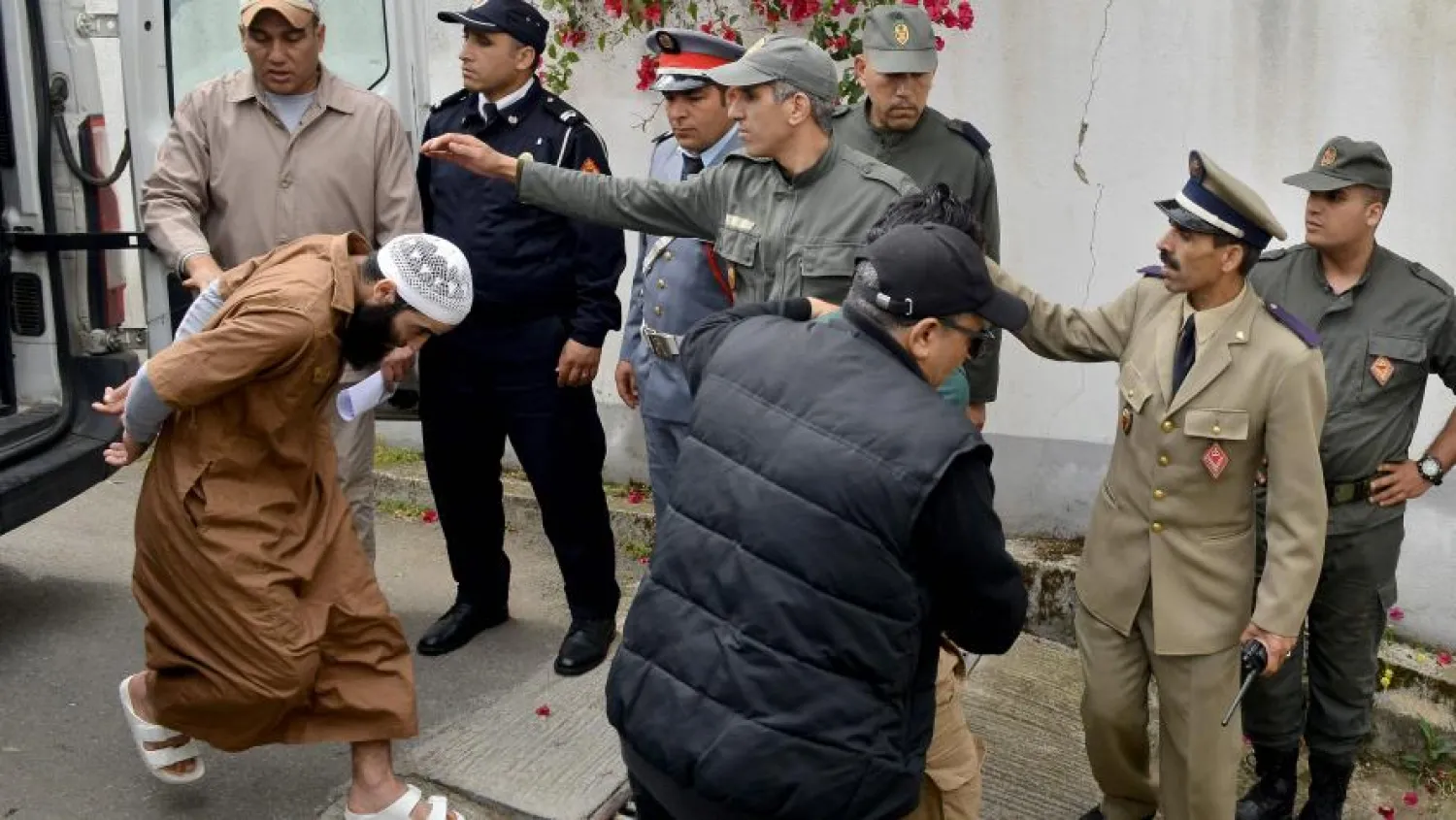A street vendor, a plumber, and a carpenter are among two dozen militant suspects who return to a Moroccan court Thursday, charged in connection with the brutal murder of two Scandinavian hikers.
Danish student Louisa Vesterager Jespersen, 24, and 28-year-old Norwegian Maren Ueland had their throats slit before they were beheaded in December at an isolated site in the High Atlas mountains.
The main suspects are all from the Marrakech region near the site of the killings, which shocked the North African country.
Abdessamad Ejjoud, a 25-year-old street vendor, is the alleged leader of the group. He had been jailed for trying to join ISIS in Syria but was released in 2015.
Younes Ouaziyad, 27, and Rachid Afatti, 33, have been named as the other two key suspects. The others have been accused of links to the killers and of forming part of a "terrorist cell".
The three main defendants accused of direct involvement, who allegedly pledged allegiance to ISIS, could face the death penalty.
A total of 24 defendants were to appear in the criminal court in Sale, near Rabat, to face charges including promoting terrorism, forming a terrorist cell, and premeditated murder.
An opening hearing was held on May 2 but immediately postponed for two weeks after defense lawyers requested more time to prepare their case.
A Spanish-Swiss convert to Islam is among the suspects on trial, accused of teaching the main accused how to use encrypted communications and how to fire a gun.
Nature lovers Jespersen and Ueland shared an apartment and went to Norway's Bo University where they were studying to be guides.
They had traveled together to Morocco for their Christmas holidays.
Their lives were cut short in the foothills of Toubkal, the highest summit in North Africa, some 80 kilometers from the city of Marrakesh, a tourist magnet.
According to the charge sheet, the assailants traveled to the High Atlas mountains on December 12 on a mission to kill tourists.
Several potential targets were passed over because the foreigners were accompanied by guides or local residents.
It was four days before they selected their targets, who were camped at an isolated site. Two of them carried out the killings while the third filmed them on a telephone, according to the prosecution.
After the bodies were discovered, the Moroccan authorities were initially cautious, referring to a "criminal act" and wounds to the victims' necks.
But that all changed when the video surfaced showing a victim being beheaded, while one of the killers refers to "enemies of Allah" says the attacks were in revenge for the killings of militants in Syria.
A separate video in the initial aftermath of the murder showed the alleged killers pledging allegiance to ISIS leader Abu Bakr al-Baghdadi.
Investigators said the "cell" was inspired by ISIS ideology, but Morocco's anti-terror chief insisted the accused had no contact with the militant group in conflict zones.
ISIS has never claimed responsibility for the double-murder.
Police quickly arrested the first suspect in the suburbs of Marrakesh, and three others were arrested a few days later when they tried to leave the city by bus.
A lawyer for one of the victim's families told AFP he would seek the death penalty for the murders.
A de facto suspension on executions has been in place in Morocco since 1993.
A second Swiss citizen arrested after the double-murder was tried separately and jailed in mid-April for 10 years on charges including "forming a terrorist group".
The main trial is expected to run for months before it reaches a verdict.









